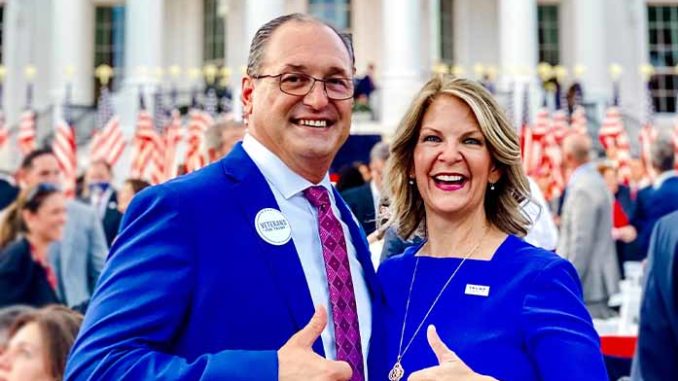
U.S. Supreme Court Justice Elena Kagan has ordered T-Mobile to hold off on complying with a subpoena issued in February by the U.S. House Select Committee on Jan. 6 which wants unfettered access to phone records belonging to Arizona GOP chairwoman Kelli Ward and her husband.
In arguing Wednesday morning for an emergency stay, attorneys for the Wards’ pointed to the “profound precedential implications” for First Amendment political associational rights and for future Congressional investigations if the committee’s subpoena for records of all calls and texts made to and from the couple’s phones from Nov. 3, 2020 (election day) to Jan. 20, 2021 (Joe Biden’s inauguration) is enforced.
“In a first-of-its-kind situation, a select committee of the United States Congress, dominated by one political party, has subpoenaed the personal telephone and text message records of a state chair of the rival political party relating to one of the most contentious political events in American history,” the filing states.
A short time later, Kagan issued an order putting the subpoena on hold “pending further order of the undersigned or of the Court.” Kagan, who is the justice assigned to review emergency filings in Arizona, then gave attorneys for the Select Committee until 5 p.m. this Friday to respond to the Wards’ First Amendment and privacy arguments.
The order issued by Kagan gives no clue as to what steps or timeline she or the full Court may take once that response is filed.
The Wards’ initially challenged the subpoena earlier this year through the U.S. District Court for the District of Arizona. Judge Diane Humetewa refused to block the subpoena, downplaying the couple’s personal, professional, and political interests for wanting records of their communications private.
Humetewa ruled that the several weeks of phone records requested were “plainly relevant” to the Select Committee’s inquiry of Jan. 6 activities. “The Court therefore has little doubt concluding these records may aid the Select Committee’s valid legislative purpose,” the judge wrote on Sept. 22.
Days later, the Wards took the matter to the U.S. Court of Appeals for the Ninth Circuit, again emphasizing the chilling impact of having their phone records turned over to the committee. Among the arguments is that the subpoena infringes on the couple’s right to political associations and on Kelli Ward’s activities as the AZGOP’s chairwoman.
The appeal also renewed arguments by Kelli Ward, who is a medical doctor, that her phone contains confidential patient information which had no relevance to the Select Committee.
The Ninth Circuit issued a temporary block of the subpoena to T-Mobile on Oct. 20, although that stay was lifted two days later when a three-judge panel voted 2 to 1 to allow enforcement of the subpoena.
The two judges who ruled against the Wards dismissed the political considerations raised in the couple’s challenge. They also believed the release of “to and from” data and IP addresses related to the Wards’ communications were not a burden because the actual content of the communications was not involved.
But the dissenter, Judge Sandra Ikuta, was troubled by the implications of allowing a government body unregulated access to the Wards’ phone records, especially without any justification from the Select Committee.
“Even assuming that the government’s interest in investigating the events of January 6, 2021, is sufficiently important, the Committee has not provided any evidence or plausible reason to believe that Ward’s contacts (whether political associates, family, or friends) were involved in the events of January 6 or explain why information about her communications has any bearing on the Committee’s investigation,” Ikuta wrote in dissent.
The Wards’ attorneys -Alexander Kolodin and Brant Hadaway of Davillier Law Group and Laurin Mills of Samek Werther Mills LLC- then turned to the U.S. Supreme Court with a 94-page emergency filing to block the Ninth Circuit’s ruling and block enforcement of the subpoena.
Kagan’s order, however, could be lifted once attorneys for the House Select Committee respond to the emergency stay. But given the critical issues at play, the Wards’ attorneys believe there will be interest by at least four of the nine Justices to take the case.
